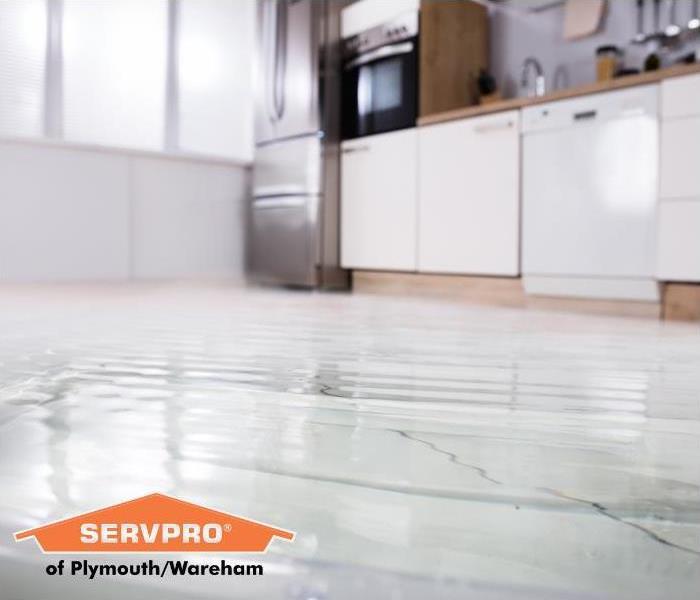What to Avoid After Flood Damage in Plymouth Homes
12/8/2019 (Permalink)
 Don't risk flood waters causing extensive structural and content damage in your home. Call SERVPRO right away after your home experiences flooding.
Don't risk flood waters causing extensive structural and content damage in your home. Call SERVPRO right away after your home experiences flooding.
Understanding Contamination Risk After Plymouth Flood Damage
Homeowners in Plymouth experiencing overland flooding after heavy precipitation or storm surge have a severe problem brewing in their cellars or lower living levels. If you believe biohazards are something that exists only in healthcare, trauma, or industrial settings, think again. Flood waters can contain a vast range of highly infectious and dangerous substances, flowing without discrimination into your home after a storm or major sanitary sewer system backup.
Specialized Equipment and Training Essential to Manage Flooding
Flood damage in your Plymouth home must be mitigated and remediated using appropriate safeguards from the start. Our crews wear personal protective equipment (PPE), beginning with assessment activity. The waters invading your home can contain various biohazards, requiring the use of PPE. Methane and other vapors harmful to breathe are often present, requiring the use of respirators. Although the flood waters can look relatively clean, assume they contain biohazards, many of which are visible only when viewed through a microscope.
Air Scrubbing Technology
Although SERVPRO’s focus is on removing the flood waters and drying the structure, we take the time to set up containment systems first. Expect us to partition off the affected area using heavy plastic, running air scrubbers to seal the perimeter and force the atmosphere inside through HEPA filters before venting outside. Pathogens can be ingested or pass through unprotected skin, and also can infect through the human respiratory system. Air scrubbers also help reduce the odors that can linger by removing the invisible particles stirred up during the restoration process.
Mold Growth Risk Increases After Flood Damage
The flood waters might contain some additional fungi, but mold spores are already in your home, awaiting a source of moisture to begin their life cycle. SERVPRO understands how critical fast flood water removal and drying is to limit potential mold growth. The window of opportunity for an explosion of mold damage can be as short as 24 to 48 hours after the flooding.
Contact SERVPRO of Plymouth / Wareham at (508) 746-9500 immediately after flood waters enter your home. The risk of illness and structural damage following sewer backups or overland floods is significant without professional intervention.
Click here for more information about Plymouth.






 24/7 Emergency Service
24/7 Emergency Service